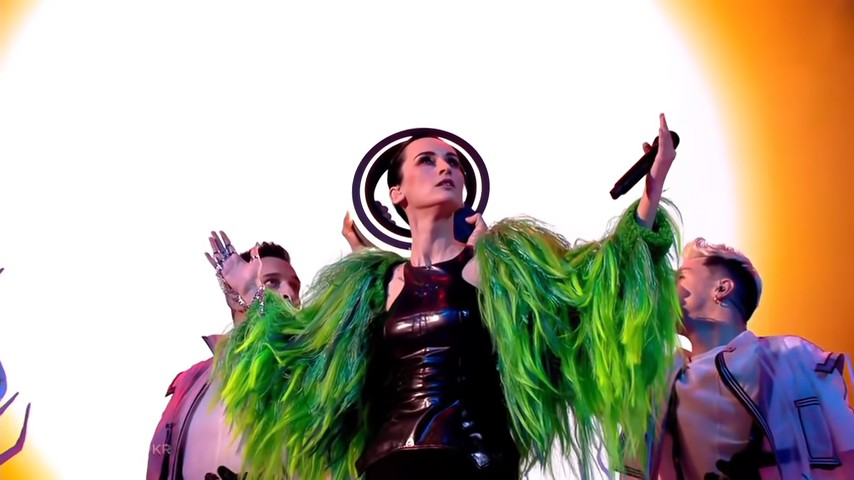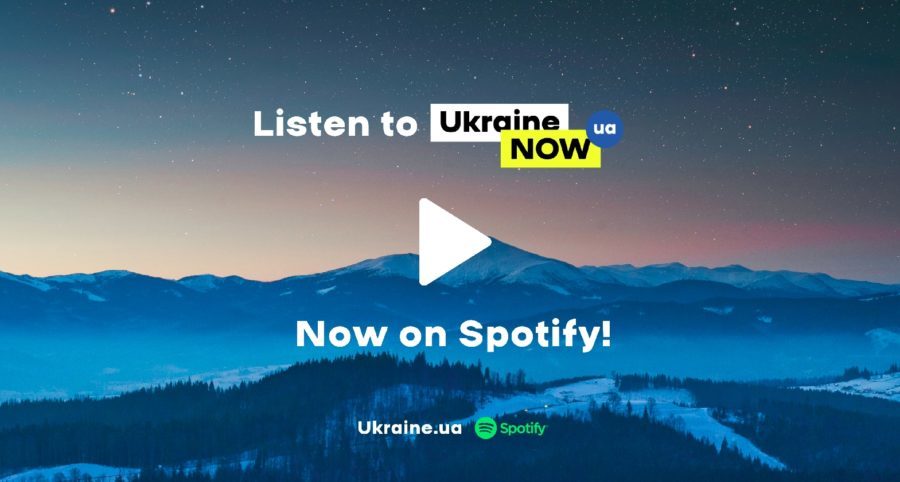Why quotas were needed
First and foremost, quotas for broadcasting music were introduced to protect the Ukrainian language. The reason was simple -- the Russian-language music audience amounts to 200 million worldwide, while the Ukrainian-language audience is some 30 million at most. Any musician was clearly incented to make records in Russian. Although most Ukrainians declare Ukrainian as their mother tongue, they usually understand Russian, which further underscores the musicians’ preference for the Russian language. When accounting for easy sales in neighboring Belarus and in Russia itself, the purchasing audience is seven times higher.
Although the majority of Ukrainians use Ukrainian as their spoken language, in the past very few Ukrainian songs were included on popular radio or TV. This translated into a low demand for Ukrainian-language content which, in turn, impacted profits generated by Ukrainian music. As a result, musicians producing high-quality Ukrainian-language music suffered financially. It was far more common for broadcasting companies to fill airtime with music produced inexpensively in Russia, or to broadcast songs in Ukrainian media -- but the Russian-language ones. In this way, they could sell content and reach a much larger Russian audience to collect greater revenues.
The reality of these market conditions makes language another powerful weapon in the Russian hybrid war. Russia is well adept at using language policy and propaganda systematically. In the 19th century, the imperialist regime claimed that Ukrainian was merely a dialect that should be crushed altogether in the Russian empire.
In total, Ukrainian-language publications were subjected to at least 60 official prohibitions during the 337 years Ukraine was ruled first by the Russian Empire and then by the Soviet Union. Today Putin declares the “need for protection of Russian-speakers” throughout the world, claiming that those territories where the Russian language is most prominent to be ethnically Russian.
Considering this policy of what amounts to language repression, it was more than reasonable for Ukraine to introduce certain quotas for Ukrainian music -- both for the sake of language protection and to support the development of the Ukrainian music industry. Amid widespread fears that quotas would destroy the Ukrainian entertainment business or that there were too few songs to fill airtime, the exact opposite occurred. Ukrainian video clips production grew sixfold.
Quotas in Ukrainian radio do not pose a burden to broadcasters. Initially, they were needed to change the trend in the industry, but now radio stations are broadcasting many more Ukrainian songs than officially required. Although the quota remains 35%, on average 53% of all songs are in Ukrainian.
The share of Ukrainian songs continues its gradual increase year-to-year beyond the official quotas. This “over-quota” not only debunks the fear that there are too few Ukrainian bands to fill airtime, but it also reflects the quality of Ukraine’s music development. According to research by the National Council of Television and Radio Broadcasting (NCTRB), 60% of Ukrainians support the policy of state protectionism as well as a larger share of Ukrainian and Ukrainian-language content on TV and radio stations.

Russian language music is the main substitution for Ukrainian content. However, since the introduction of the quotas three years ago, the production of video clips for Ukrainian songs has increased six times. Producer of the M2 TV channel Roman Mukha added that the introduction of quotas has attracted some 100,000 people to work in the Ukrainian music industry across the country -- arrangers, musicians, lighting technicians, sound studio specialists and more. He emphasized that quotas have led to advances in the music market and, just as significantly, to changes in the structure of music-related employment.
Not only have official quotas facilitated the rapid development of Ukrainian music, but a change in listener preference after the Revolution of Dignity has influenced this shift as well, says Dmytro Sydorenko, founder of one of the country’s largest festival Atlas Weekend.
What happened in 2014 was a turning point for the whole country, including show business. It started to develop at a tremendous pace. Before, 60-70% of the market was occupied by Russian artists. Now in the majority of cases, they have stopped coming here. When the rotation for Ukrainian musicians increased on TV and Radio stations, many of those who had been in the shadows managed to break through ... The main problem was that our artists could not earn money because of the competition [with Russians]. Now they have also started to reinvest in themselves, to create better albums, better videos for their shows. They managed to create materials which are competitive, not only in Ukraine. Some artists like SINOPTIK, Stoned Jesus and Jinjer, started to perform in Europe ... Our musicians have started ... to develop in terms of quality. For example, recently the band Odyn v Kanoe played sold-out concerts for three days in a row.
- Read also: What it means to organize a major music festival in Kyiv – interview with Atlas Weekend founder
What is Ukrainian music today
Although it is not easy to summarize the musical styles of Ukraine, some media projects have gone forward.
The Radio Aristocrats team has monitored almost 1,000 Ukrainian most-popular bands, and collected their combined output of 416 albums released in 2018. Texty.org.ua created a visualization of their key findings of Ukraine’s current music tendencies:
In 2018, most artists sang in Ukrainian, which was not the case a few years ago. A total of 74 albums had songs in Ukrainian, 52 -- in English. Thirty-nine albums were produced in some combination of English, French, Russian, and Ukrainian, while 31 were completely in Russian. A contingent of 46 performers produced music without any vocals.

Almost 40% of all albums in 2018 were produced by newcomers to the music industry, another indicator of rapid development. The most creative cities are Kyiv (118) and Lviv (26), followed by Kharkiv (12), Dnipro (9) and Odesa (9).
Furthermore, 73% of album groupings measured by the team were created by male bands, 9% by female bands, and 18% by mixed-gender bands.

Another effort to gather a variety of Ukrainian music was carried out by Ukrainska Pravda. Their project “How Ukraine Sounds,” led by Oleksandra Hayvoronska and Sasha Koltsova, produced a list of the 700 most popular Ukrainian bands and musicians of various genres.
Working on the list, Hayvoronska and Koltsova tried to avoid any political distinctions. The groups of musicians that can be described as nationalists, and those groups who mock them, are both represented. The list reveals the strong dominance of Ukrainian-language music. Approximately, 450 out of 700 artists have Ukrainian songs in their repertoire, while 269 have Russian-language songs, and 245 have English-language. Yet, only 90 bands were singing exclusively in Russian – more evidence of the disproportion between the creative tastes of Ukrainian musicians and the music that was broadcast over radio and TV outlets, before the quotas were introduced.
Ukrainian bands also create songs in French, Spanish, Polish, and Bulgarian. Perhaps the most extraordinary Ukrainian band is Atmasfera who sing -- among other languages -- in Sanskrit. Their songs include mantras, in their both cheerful and meditative music.
Hayvoronska and Koltsova’s extensive list of 700 Ukrainian musicians includes mostly contemporary artists -- those who are widely popular as well as those with more of a narrow appeal. Some unique tracks of vintage celebrities were also included; such as a 1928 recording of the Ukrainian folk song “Oy de ty idesh” (Where Are You Going). The piece is performed by Solomiya Krushelnytska, an acclaimed Ukrainian soprano, considered to be one of the brightest opera stars of the early 20th century.
Some unusual Ukrainian bands, who have toured internationally, were also included in the list. Among them is DakhaBrakha, describing their songs as “ethno-chaos”:
Another band with a unique history is Odyn v Kanoe (One In A Canoe). Using only acoustic guitar, acoustic drums, and vocals -- without any PR technology or even properly recorded and marketed albums -- the band is popular in Ukraine and frequently performs abroad:
Poobitsiaj meni (Promise me):
Nebo (Sky):
Horeia Kozatska (Kozak’s Choir) is reconstructing Ukrainian baroque music, using sheet music from the 17th century and authentic musical instruments of that era:
Ancient anthem for freedom De libertate:
Onuka is a Ukrainian electro-folk band that started one of the new music trends in Ukraine. The Ukrainian word Onuka translates as "granddaughter," a tribute to lead singer Nataliia Zhyzhchenko's grandfather Oleksandr Shlionchyk, who was a renowned folk instrument artisan.
A clip by Onuka of the song “Svitanok” (Sunrise) linking together New York and Lviv:
As the last example, the most exceptional artist of contemporary Ukrainian pop music is Dzidzio, which translates from a Ukrainian Carpathian dialect as “Grandpa.” His innovative works include quirky videos in the genre of comedian pop:
Dzidzio’s clip “Me and Sara”:
However, in addition to these population compositions, Dzidzio has created serious work. He studied classic vocals and conducting in the Lviv Music High School, and is a graduate of the renowned Kyiv National University of Culture and Arts. He has been a jurist for several music competitions and is known for his riveting Ukrainian anthem opening at major league football matches. It’s more than fitting to end with this powerful rendition:
Read more:
- Polyphony Project: discovering the largest online archive of traditional Ukrainian songs
- The three Ukrainian women breathing new life into ancient musical traditions
- The destruction of Ukraine’s folk singers
- A taste of Ukraine's poetic Renaissance executed by Stalin
- Why Ukraine’s language law is more relevant than ever





